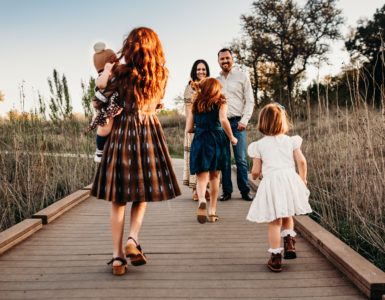This woman is someone I’ve known and loved since high school. So, for a long time. She’s a single foster mom and a nurse. She amazes me. I got to ask her a few questions and she was gracious enough to answer with honesty and transparency.
For the safety and anonymity of everyone, she’s going by a pseudonym.
Me: So, Heidi, can you tell us a little bit about yourself?
Heidi: I have always had an interest in advocating for and showing love to kids in need. Becoming a foster parent was something I had an interest in pursuing, but always thought, “after I’m married.” So, I kept putting it off. It was right around the time the COVID shut downs started when I felt God tugging at my heart to actively look into the process of becoming a foster parent. It was a crazy thought because, at the time, I was essentially homeless myself. But, I started listening to a podcast about foster care, joined Facebook groups on foster care, and started doing my homework on foster care. As a nurse who has specialized in trauma nursing, forensic nursing, and now school nursing, I have had a lot of education in understanding how trauma affects the brain, specifically in the developing mind of a child. It wasn’t long before I realized that I can still give a child plenty of love as a single patient, especially when they may not have any parents at this time in their lives. It took another year for me to find stable housing, but I immediately initiated the process of becoming a foster parent, and here I am!
Me: How old are you?
Heidi: 39
Me: what age range will accept to foster?
Heidi: Pre-teens and teens—with the possible exception of sibling sets that have at least one teen.
Me: How long did it take to certify to be a foster parent?
Heidi: About seven months
Me: Do you ever wish you had not chosen to be a foster parent?
Heidi: All the time. (I want my house and personal space back! Lol)
Me: What are your biggest frustrations being a foster parent?
Heidi: The failures of the system, caseworkers who do not care about the needs of the child, lack of support from GAL/CASAs, lack of care or concern for the wellbeing of the foster parent when dealing with a difficult child, and most importantly the constant retraumatization of the child because no one believes them: frustrations that I feel like I am the only person who is actually fighting for these kids to have a better life.
Me: What are your biggest triumphs being a foster parent?
Heidi: Seeing my first foster son being reunited with his biological father.
Me: What is your favorite part of being a foster mom?
Heidi: Knowing I am making a difference. Well, in between the moments of self-doubt and struggling to remember why I am doing this in the first place…I may never see the difference I am making, but I know I am making a difference.
Me: What surprised you the most?
Heidi: In all honesty, I was most surprised by how much becoming a foster mom has actually helped me. I have a history of severe anxiety and depression and had often doubted that I was capable of taking care of myself, let alone another human being. But, becoming a foster mom gave me the ability to wake up every morning with a sense of purpose and pride in what I am doing. Yes, there have been days that I wish I didn’t have to go take care of another human being, but in the end, it has been as much of a positive impact on me and my life as I hope it has been on the kids.
Me: What was easier than you expected?
Heidi: Connecting with the kids. I mean, teenagers…let’s be honest. They can be some of the hardest people on earth to connect with!
Me: What is the most difficult part of being a single foster mom?
Heidi: Getting a break. There isn’t anyone else to share the responsibilities of supervising the kids. In the moments when they are driving you crazy, or you just need a break, you are just stuck powering through. Also, maintaining a full-time job while still meeting the demands of all of the required appointments. The agency is supposed to assist with transportation to and from appointments, but they are always understaffed and not available to help very often.
Me: What do you think is an advantage of being a single foster mom?
Heidi: Many children who come into foster care have unfortunately learned the art of manipulation. For some, it was a matter of survival. For others, it was the only way to control certain situations. Being a single foster parent removes the potential for the child to try to manipulate one parent against the other. The only downside is the single foster parent then has to deal with both “Jekyll and Hyde;” sometimes at the same time.
Me: What is the single best piece of advice you could give someone considering becoming a single foster parent?
Heidi: One loving parent is absolutely better than no loving parents. Also, find your tribe of support. If you are a man, find female role models to introduce to your future foster kids and vice versa for women. It truly does take a village, but that village starts with one person. Also, see the child and not just the behavior. These kids have often been through more than we can ever imagine. The only thing they might know is anger.
Me: What is the best piece of advice you received about being a foster mom?
Heidi: Don’t take it personally and it’s ok to say no. I’ve heard it stated, “saying no to one child means saying yes to another.”
Thank you so much for your time and the thought you put into answering these questions, Heidi.




